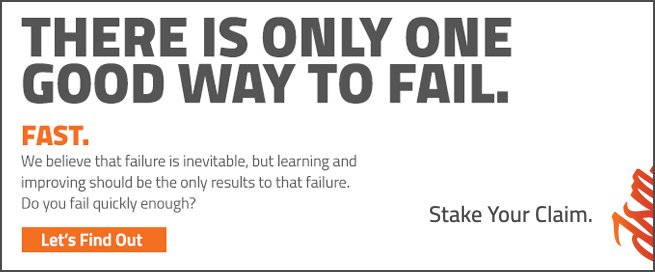You have a kick-ass company and you’re ready for people to realize it. It’s time to get the ball rolling, but you’re just not sure how. Sound familiar?
If so, digital marketing and digital advertising are two different avenues that you can travel down. Each offers its own benefit, so it’s important to determine which methodology you need to grow your brand.
Say you own a car repair business in New Jersey (why give the state yet another fictional waste management company, right?) Your business is in an area where lots of New York City commuters live. With this knowledge, what might your business do when it comes to digital marketing vs. digital advertising strategies? Let’s take a look.
Digital Marketing Ideas:
- Put out a blog with useful content for NJ drivers with a considerable dose of personality throughout the posts.Think: NJ-to-NYC Commuter Secrets, What Mechanics Don’t Want Commuters to Know, How Winter Storms Could Trash Your Car, 10 Signs You’re the Most Excellent Car Owner Ever, 5 Must-Have Apps for NJ Commuters. Providing a relatable answer to the questions that your target audience is searching for is the first step in earning their trust.
- Calls to action. Consider “Sign up to get our free guide for North Jersey commuters,” or “Book an online appointment now to get your car checked before your road trip.” Think of your CTA as the question you ask at the end of a first date when you want to exchange numbers and meet up again. No, seriously. A good call to action helps to move the process along towards the ultimate goal of sealing the deal.
- Video tutorials. Explain to your viewers how to change a car tire from one of your employees. By connecting a face to the useful information that you’re providing, your brand becomes even more personable and trustworthy.
- Website designed for search engine optimization (SEO) that’s mobile-friendly. SEO is the bait you need to catch not only just new clients but the right ones. When you make your site accessible for smartphones, you’re able to reach an even wider demographic – because who doesn’t use their phone for absolutely everything nowadays?
- Active, engaging social media posts on your accounts. Twitter isn’t just for memes, people. Social media platforms offer you the chance to engage with your audience in real time. When you post something that your audience can connect with, they’re not only going to toss you a like, but your brand will be at the top of their mind.
- Customer engagement programs to leave reviews on sites like Yelp. People want to hear from others who have worked with you in the past. A good review holds more power than you think.
- Monitor your online reputation, see what reviews are saying online and how customers are reaching you. Focus on the data that’s available to you and use it to your advantage to make changes when necessary.
Digital Advertising Ideas:
- Ads when someone visits a commuter website or browses Facebook. These ads are, in fact, effective. They place your company amongst the flow of everyone’s feed, making it easier for someone to casually stumble upon your site.
- Pay-per-click (PPC) campaigns based around keywords consumers are likely to type into search engines (ex: “car repair shop Sussex County”). PPC advertising campaigns can help drive traffic to your site. Be sure to back it up with relevant content as part of your marketing strategy.
- Digital coupons with deals such as 50% off an oil change. No one can pass up a good deal, and if you say you can, you’re wrong. Offerings like these will immediately grab a viewer’s attention and have them eager to save some money by using your services.
Which Does Your Business Need?
Digital marketing is ongoing and requires you to utilize your blog and website as the powerful tools they are. This means keeping them up to date. Digital marketing encompasses advertising, but it goes beyond just this one practice. It involves doing keyword research and SEO, creating tailored content, and even maintaining an active presence on social media. With digital marketing, you’re in it for the long haul, but you’ll reap the long-term benefits.
Here’s a secret: digital marketing may not be as complicated or time-consuming as it seems. For example, you can outsource your digital marketing to an agency and get everything that digital marketing has to offer for not much more than you would pay the agency for advertising services. In return, your base of potential customers expands considerably. As a result, many customers will have the ability to find you organically, rather than through paid ads.
Digital advertising is less of a long-term approach than digital marketing, so it works well if you have limited resources and time. It can work wonders if your ads are carefully placed where your target audience is. Placing the right ads, in the right spot, at the right time, allows you to meet the right people where they are. When done effectively, these efforts can help a business obtain and, with your later efforts, retain customers.
Digital Marketing vs Digital Advertising: Examples
Take two businesses: Eddie’s Auto Repair and Tony’s Auto Repair. Both have websites, a form of digital marketing.
Eddie’s
Eddie’s website looks professional. It has pages like, “About Us,” “Locations,” “Service & Repair,” “Tires & Wheels,” and “Coupons.”
To give an idea of the detail each page goes into, the “Service & Repair” page lists services such as 24-hour towing, air conditioning repair, brake service and oil changes as part of a bulleted list. The coupons page displays coupons potential customers can print out and use in the store.
Tony’s
The blog for Tony’s business is its best friend. The service and product pages incorporate phrases that potential customers search for, whether they’re on the generic or very specific. Tony’s business links out to blog posts from its social media platforms, and loyal customers take the time to like and share them. Particularly funny or educational posts achieve a great deal of engagement, resulting in even more customers.
Moreover, pages like Tony’s “Service & Repair” tab goes past a bulleted list. Consumers are able to explore each service or repair option in depth on its own page. Each page uses localized content to establish the business as an authority. For example, the 24-hour towing page is a natural page to work in phrases such as, “Driving down I-287?” The readers have a sense that this content is crafted with them in mind.
Putting Eddie & Tony’s Websites to the Test
A motorist who has just experienced a breakdown at 2 a.m. on I-287 might type into Google, “late-night towing service, I-287 Pompton Lakes.”
Tony’s business comes up first, hands down. The first page of search results also shows several blog posts from Tony’s related to late-night car breakdowns. This helps establish Tony’s credibility with the potential customer and leads to the customer choosing Tony’s over other highly ranked competitors.
Nothing from Eddie’s business shows up until page three of Google results. We hate to break it to you, but if you’re not on the first page, you’re not relevant.
Although Eddie’s website is functional and professional, it doesn’t incorporate enough digital marketing tactics. Once in a while, Eddie’s shop runs PPC campaigns targeted at specific customers such as those needing 24-hour towing. These efforts result in a short-term increase of website traffic and a small pickup in overall customer numbers.
So, what’s the relevance of digital marketing vs digital advertising?
Both marketing and advertising are effective means of driving traffic to your business with the hopes of securing the right clients. You know your brand is a sports car in a sea of minivans, but you need everyone to want to buy it. Digital marketing and advertising are the horsepower your business engine needs to rev things up and finish first.
Depending on which strategy is right for you, digital marketing and advertising agencies exist to help your business reach its potential. After all, you know you have it in you; you just need some help to see it through.



